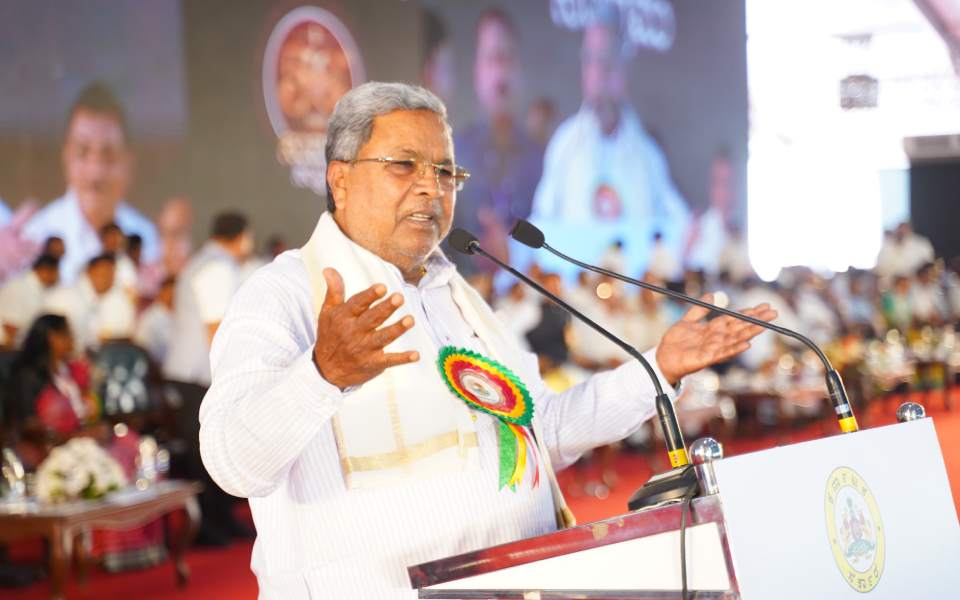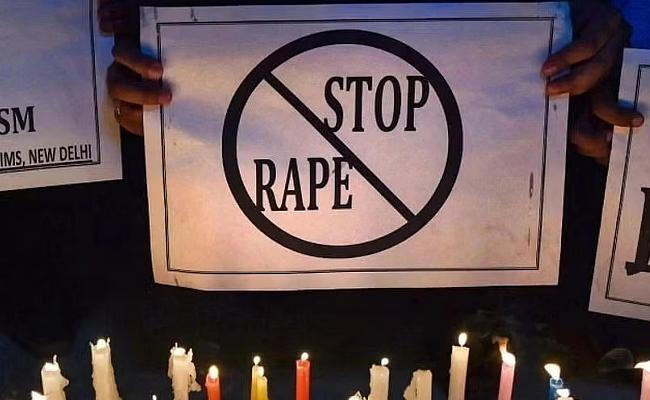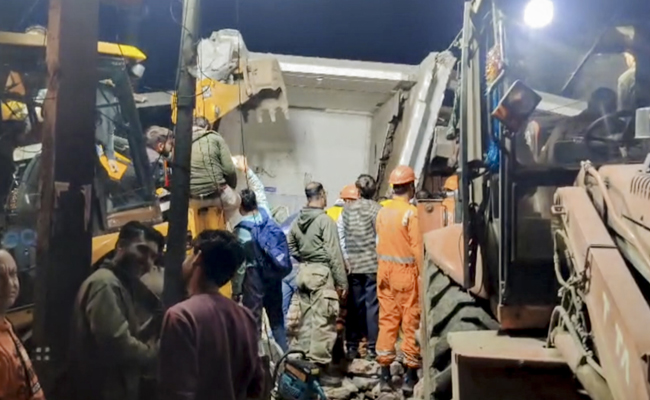Bengaluru, Feb 29: The much awaited Socio-Economic and Education Survey report, generally known as the 'caste census', was submitted to Chief Minister Siddaramaiah by Chairman of the Karnataka State Commission for Backward Classes K Jayaprakash Hegde on Thursday.
The report comes amid objections to its findings by certain sections of society and even within the ruling Congress.
"We don't know what is in the report. The government has received the report, it will be placed before the cabinet, and will be discussed and decided there," Siddaramaiah told reporters after receiving it.
People of Karnataka's two dominant communities -- Vokkaliga and Lingayat -- have expressed reservations about the survey, calling it unscientific, and have demanded that it be rejected and a fresh survey conducted.
According to some analysts, successive governments have been shying away from releasing the report as the findings of the survey are allegedly contrary to the "traditional perception" of the numerical strength of various castes in Karnataka, especially the Lingayats and Vokkaligas, making it a politically sticky issue.
ALSO READ: Karnataka caste census report submitted to state government
Deputy Chief Minister D K Shivakumar, who is also the state Congress President, is from the Vokkaliga community. He was a signatory, along with a couple of other ministers, to a memorandum submitted by the community to the chief minister, requesting him to reject the report along with the data.
The All India Veerashaiva Mahasabha, the apex body of Veerashaiva-Lingayats, has also expressed its disapproval over the survey, calling it unscientific, and demanded that a fresh survey be conducted.
The Lingayat body is headed by veteran Congress leader and MLA Shamanuru Shivashankarappa. Moreover, several Lingayat ministers and MLAs too have raised objections to the survey and its findings, putting the Congress government in a tough spot.
In 2015, the Siddaramaiah-led Congress government of 2013-2018 had commissioned the 'caste census' in the state at an estimated cost of Rs 170 crore. The Karnataka State Commission for Backward Classes under its then chairperson H Kantharaju was tasked with preparing the Socio-Economic and Education Survey Report.
The survey work was completed in 2018, towards the end of Siddaramaiah's first tenure as chief minister, but the report was not accepted or made public.
The commission under its current Chairman Jayaprakash Hegde was to submit the report in November last year. However, as some more time was sought, the government had extended his tenure for the submission of the report.
With pressure mounting on the Siddaramaiah government from certain sections to make the survey findings public, following the release of the Bihar government's caste survey report a few months ago, the chief minister had earlier said that a decision would be taken once he receives the report.
But the survey was mired in controversies even before the report was submitted to the government, amid deep divisions within the ruling Congress, stiff opposition by the two dominant communities against its acceptance, and the survey's original 'work-sheet' copy going missing.
As the two politically influential communities of Vokkaligas and the Lingayats have expressed strong disapproval of the survey, the caste census report seems to be a political hot potato for the government. It may set the stage for a confrontation, given that Dalits and OBCs among others are demanding for it to be made public.
Political parties in the state have indulged in a blame game over successive governments not accepting the survey and not making it public.
Let the Truth be known. If you read VB and like VB, please be a VB Supporter and Help us deliver the Truth to one and all.
Kotdwar (PTI): A man was arrested here for allegedly raping his 13-year-old stepdaughter, police said on Sunday.
The 32-year-old accused was arrested from Najibabad Road on Saturday and later sent to judicial custody on court orders, they said.
According to police, the minor's mother had lodged a missing person complaint on Friday, stating that her daughter had left home without informing anyone at around 7 am on February 5.
During the investigation, police analysed CCTV camera footage from nearby areas and found that the girl had gone to her grandmother's house.
The grandmother told police that the girl was extremely frightened and did not want to return home due to alleged harassment. She later left the girl with an acquaintance, from where police safely recovered her.
After gaining the girl's confidence, police said she disclosed that her stepfather had raped her on the night of February 4, following which she ran away from home the next morning.
A case has been registered against the accused under Sections 65(1) and 75(2) (rape) of the Bharatiya Nyaya Sanhita and Sections 3 and 4 (sexual assault) of the Protection of Children from Sexual Offences Act.





